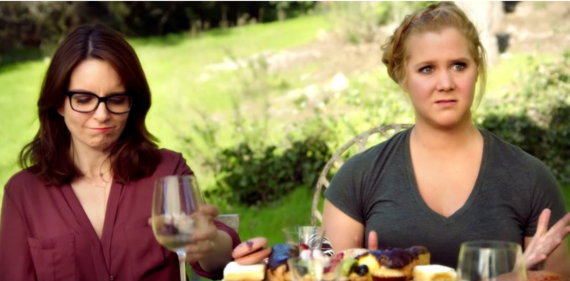"This whole IMDB thing started at the ageism panel you did here in August!!!!!" That excited note landed in my in-box shortly before my keynote at Deal With It, a women's conference sponsored by the Motion Picture and Television Fund on September 25th -- in style at the Beverly Hills Montage Hotel, I might add. The note came from one of the organizers and referred to California law AB 1687, which had passed the day before. The legislation requires certain entertainment sites, like IMDb, to remove an actor's age or birthday upon request, or not to post it in the first place. The law, said SAG-AFTRA President Gabrielle Carteris, "will help prevent age discrimination in film and television casting and hiring."
No it won't. As I responded to the organizer, "Unfortunately, it's the wrong fight because it's based on denial -- it's an online version of attempting to conceal your age. And it distracts from the underlying issue: the devaluation of actors who are no longer young."
I incorporated that point into my talk -- SAG-AFTRA supplied the tote bags, after all -- and got my first standing ovation. But some of the attendees who came up to the stage right afterwards were really angry about it. "We have no choice," they said. "We have families to support." I get that, I really do. As I also said in the talk, concealing our age, just like dyeing our hair to cover the gray or freezing our faces with Botox, is a really successful strategy for remaining visible in a culture that tells us incessantly that older = ugly. Hollywood is the epicenter of that culture, and every day these women -- especially those in the entertainment industry -- face a double whammy: vicious ageism compounded by rampant sexism.
But this behavior is like a gay person attempting to pass for straight, or a person of color for white. Age denial isn't good for us, because it turns a natural attribute -- something about ourselves that we cannot change -- into something shameful. It reinforces the deeply ageist idea that our present-day selves are inferior to our younger selves. Even more significantly, it gives a pass to the underlying discrimination that makes these behaviors necessary. It's easier to put a bandaid over an issue than to confront it, but it gives prejudice a pass. Aging remains a toxic topic in Hollywood, which is why the big-name celebrities who pushed for the legislation kept their names out of the story. They're still afraid -- understandably -- of being tarnished by association.
It was gratifying when the organizer emailed back, "Oh right. Shit. You're right." I don't know how much headway I made with those women, but I was glad to hear this the next day from filmmaker Robyn Rosenfeld, who co-produced the August panel: "I spoke to a few of the objectors re your IMDb comments and I had the chance to voice why it's so important to look at it as the wrong argument -- that age discrimination is a much larger issue than hiding/denying ones age on the Internet. I think they got it. In fact they ended up giving me their cards and wanted to learn about future panels on ageism." That's real progress. So is the fact that almost every woman who came up to buy a book afterwards volunteered her age. (No prompting from me.) One of them told me it was the first time in decades that she'd said how old she was.
"How did it feel?" I asked.
"It felt strange," she replied -- with a smile.

